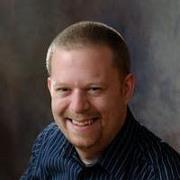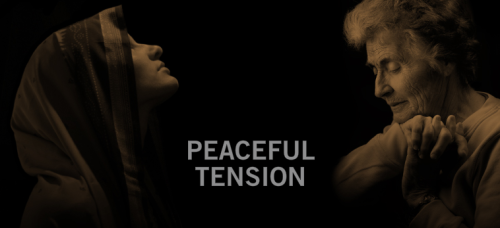[The following is a guest editorial from David Dashifen Kees. David Dashifen Kees has been working with members of other religious and philosophical communities through both interfaith dialog and activism for almost ten years and considers interfaith work to be a calling. He’s the technical director for the Pagan Newswire Collective, a blogger at paganactivist.com, and he is on the executive committee for the International Pagan Coming Out Day. You can find his burgeoning blog at http://technowitch.org.]
In May 2012, a guest post here introduced me to the Foundation for Religious Diplomacy (note: the website for the FRD is currently undergoing a redesign and reorganization at the time of this writing). I was intrigued. As an employee at a major American public university, I’ve worked with many student interfaith leaders, some of whom have gone on to work with the Interfaith Youth Core. But, as a staff person, I was unable to partake fully in some of their activities. One way that I was able to get involved was as a Pagan representative to various panel discussions and similar events at the university and to assist the Pagan student’s association in similar capacities.
Thus, it was with some excitement that I began to investigate the FRD. Here was an organization dedicated to the very activities that I found so fulfilling over the last decade and whose work was focused on facilitating them between its various chapters. I’ve been working with other Pagans as well as with John Morehead, the custodian of the FRD’s Evangelical chapter and an author of the above-linked guest post, to investigate the feasibility of a Pagan chapter.
I’ve found that not only is it feasible, but that I’m ready to make it happen. Perhaps just as importantly, the FRD is excited to have us.
It is an ideal organization for us to be involved with. It recognizes that a person’s deeply held beliefs are not likely to change. Further, these differences, when not understood, are what lead to resentment between different religious and non-religious communities rather than understanding. Thus, the foundation uses dialog–or as they term it, “honest contestation”–as a way to foster that understanding.
This is something that I personally find very attractive about the FRD: it is not necessarily seeking common ground but, instead, works toward the understanding of difference. Common ground exists, to be sure, but it’s fairly bland and relatively easily found. Most ethical systems, religious or otherwise, frown on murder, for example. But a discussion on why murder is wrong is not very interesting specifically because we’re already standing on that ground–that’s why it’s common in the first place!
Instead, the FRD wants to find the points of contention and talk about those. And, through its dialogs, it seeks to foster an understanding of these differences to create an environment of “peaceful co-resistance.”
I’m not going to convert to a form of Evangelical Christianity anytime in my foreseeable future. But, I have no interest in being ignorant neither of it nor of the practices and motivations of Evangelical Christians. Thus, if I were in dialog with one, I would seek a place of peaceful co-resistance with him or her. Peaceful because we’re seeking to learn and understand–conflict doesn’t assist either of those goals–and co-resistive because neither they nor I are likely to be converted on the basis of a single conversation, if at all. We would both be sharing our personal stories while, on some level, resisting those of others. It’s a term that further emphasizes the realism inherent in the FRD’s process, methodology, and mission.
I will admit that the confrontational language of phrases like “honest contestation” and “peaceful co-resistance” are discordant to my usual philosophies; I tend to be a live-and-let-live sort of guy. But I’m reminded of a lecture given by two atheists at the Illinois Conference on Interfaith Collaboration in 2012 (in the spirit of full disclosure, it should be mentioned that I helped organize that event). In it, they discussed the value of debate within interfaith efforts and came to the conclusion that, explored effectively–with civility, honesty, and tact–the disagreements between our faiths and philosophies can be as important, if not more important, than our agreements. Further, that advocating for our passionately held beliefs while embodying civility, honesty, and tact can more effectively educate others about our differences and help build respect and trust between individuals in a way that a more casual search for common ground does not. Build enough bridges between individuals, and soon an entire culture of understanding may be born.
In the end, whether we call it dialog, debate, or contestation, it all comes down to trust. There are many of us who have difficulty trusting those who have an evangelical mission with our deeply held beliefs. We worry that there may be a hidden agenda driving their interest in our faith and philosophies. To some extent, I share this fear but I categorically reject it as a foundation for decision making. Fear is to be overcome, not coddled, and we cannot know the truth of the intentions of others without first being willing to meet with them and see what may come of such a meeting.
I have said on my site that I am a Pagan evangelist. I think, to some extent, that we all advocate for our truths. Granted, zealous advocacy can become negative if it turns into a forced alteration of another’s lifestyle. But, we all have things in our lives for which we feel great passion, and it is part of the human condition to hope that, when sharing our passions with others, that they may come to share them. Whether this takes the form of meeting another baseball fan and hoping they prefer the same team, endlessly debating the merits of this or that character in a popular movie or novel, or sharing the truth of the world and how it operates according to our own philosophies, evangelism is not, by itself, a purely negative thing.
We have to begin to trust one another enough to take the first step toward understanding. My experiences with Christians, Evangelical or otherwise, have been largely positive. It was with Evangelical Christians that I helped organize the first Illinois Conference on Interfaith Collaboration. Some of those same Christians are preparing for the second of those conferences. It was with Evangelical Christians that I attended a ceremony of solidarity at Boston’s Trinity Church in the wake of the August 2012 shooting at a Sikh gurdwara in Wisconsin. And it is the Evangelical Chapter of the FRD that has, on a number of occasions, reached out to Pagans like Mike Stygal, Gus diZerega, our own Jason Pitzl-Waters, and myself hoping that we will take then next step.
This is not to imply that the FRD is simply an Evangelical organization. There are sixteen chapters listed on the FRD website including ones for Judaism, Buddhism, Hindu, Mormon, Humanist, Muslim representatives, just to name a few. It is my intention that the Pagan chapter, currently listed as TBA on the site, will soon begin to share details of our faith practices and theological thinking as much as the other chapters share theirs.
Over the past weeks and months, I’ve begun to reach out to people who have shown interest in forming the Pagan chapter of the Foundation for Religious Diplomacy. I’ve spoken to bloggers like Teo Bishop and Kris Bradley, individuals who lead in their communities like Shauna Aura Knight, and even some Pagan interfaith leaders like Macha NightMare. Some larger Pagan organizations, like Circle Sanctuary and the Covenant of the Goddess, have also shown interest in moving ahead with this sort of work. But, these are just the people and groups with whom I have a personal connection one way or another. To more accurately represent our Pagan community and all the diversity that exists within it, I need to cast a wider net.
And that’s where you come in.
The next step is going to be forming a core set of individuals–both individuals who simply represent themselves and those who can speak for larger groups–that will form the nucleus of the FRD Pagan chapter. From within that group, a custodian will be chosen. “Custodian” is their term; I suspect that this person will come to see the title not as a granting of authority, but rather as the freedom to receive more email and contact about the chapter than anyone else within it!
But that group will not be the entire chapter. We’ll also be seeking members of specific Pagan and non-Pagan traditions that can work together to share with others what makes us unique so that the other members of the FRD might not mistake Wiccan for Pagan and Pagan for Heathen. In fact, I’d like to see the chapter organize some conversations between members from different traditions so that we can come to understand each other more fully.
If you’re interested in seeing this process through to completion, whether you want to be a part of the core of the group or just want to be in-the-loop about our progress, please fill out this Google form. This is a job for us all, not just me, and I hope that you will come along for the ride.




















